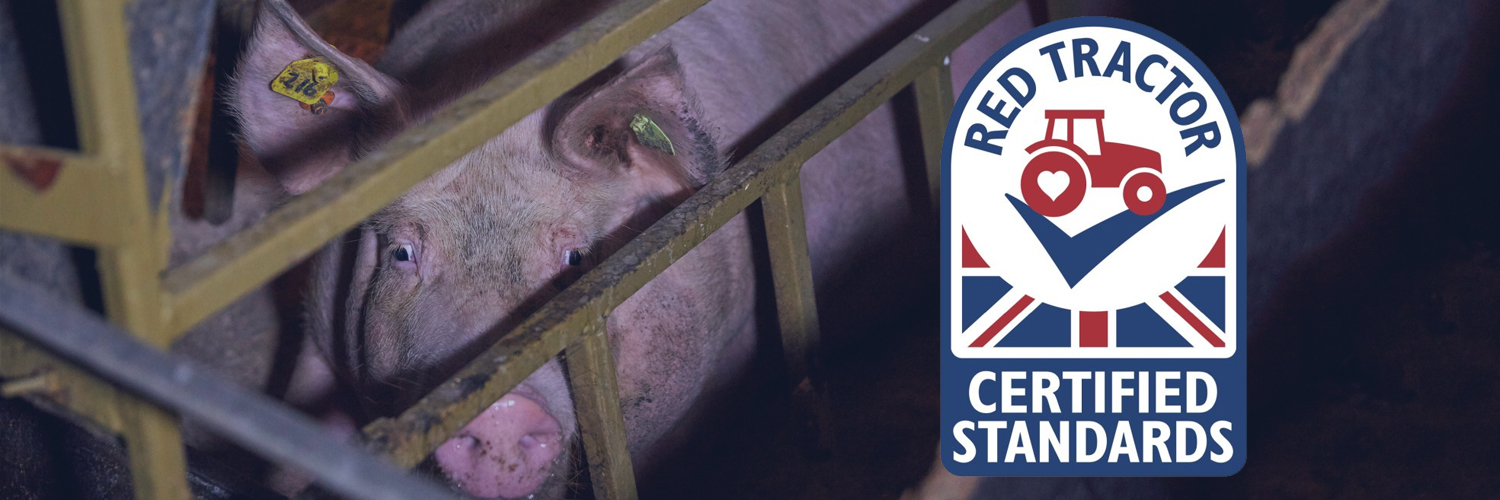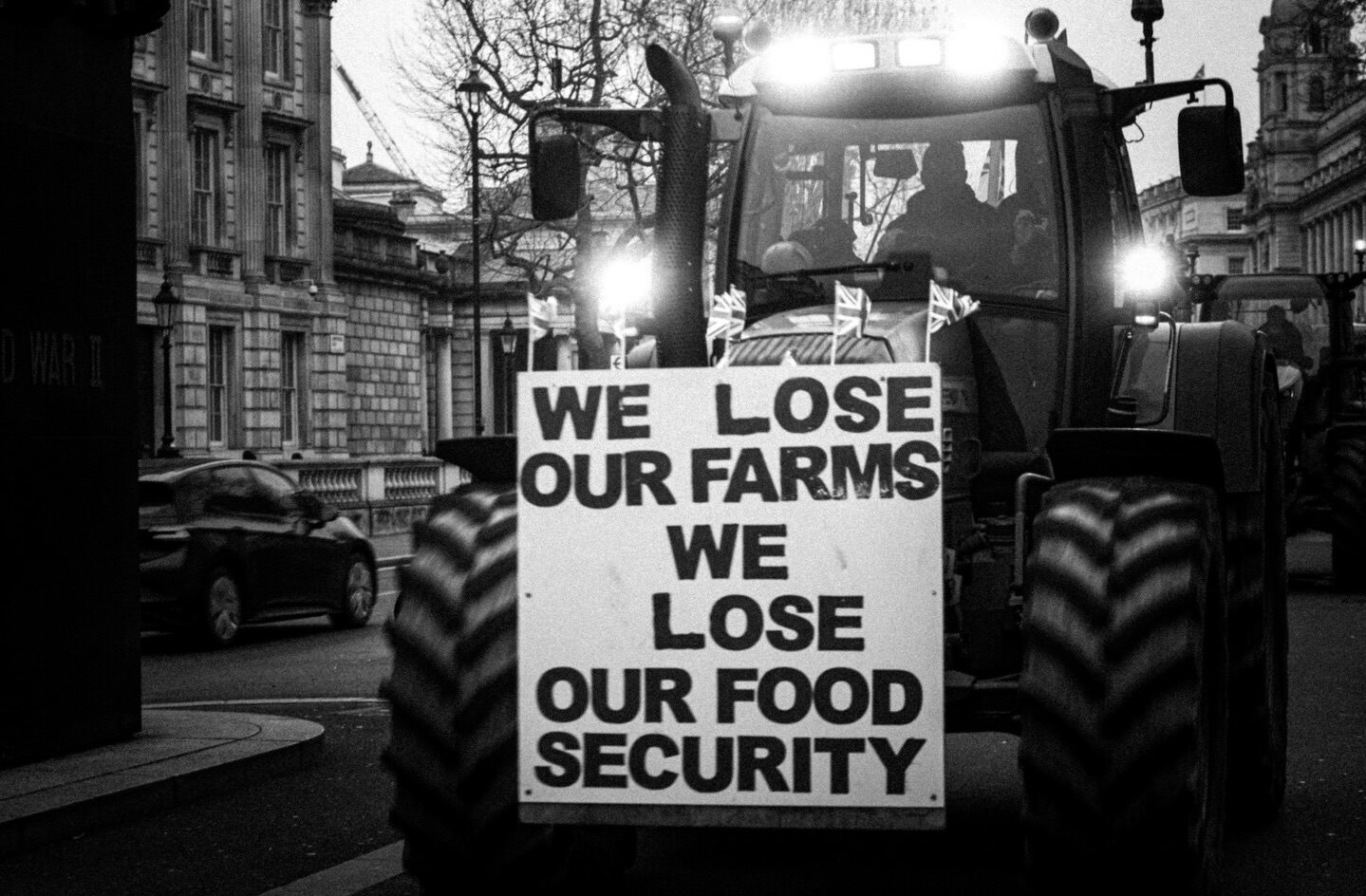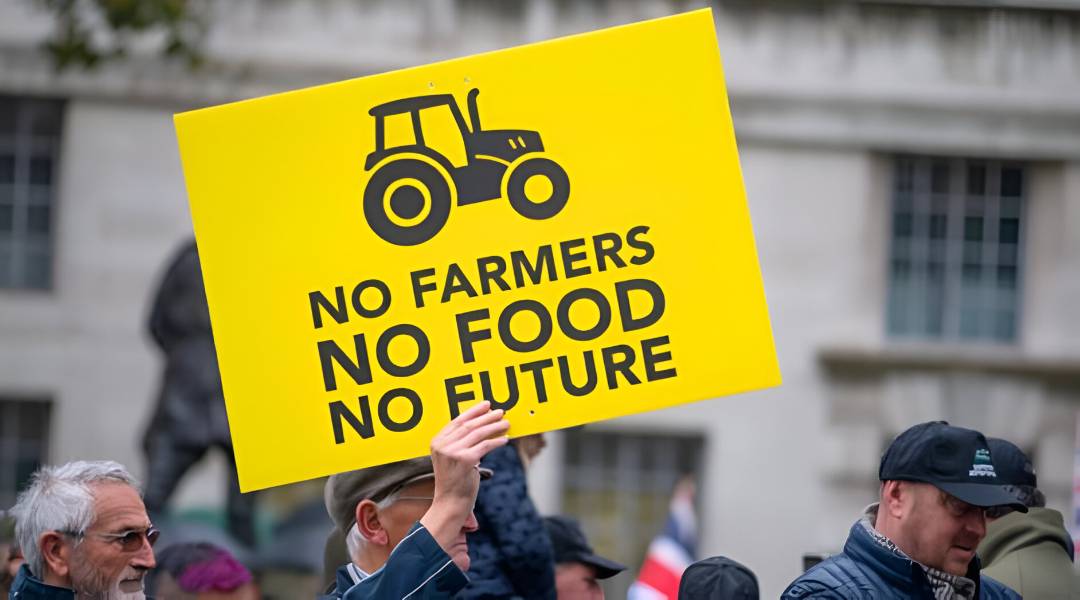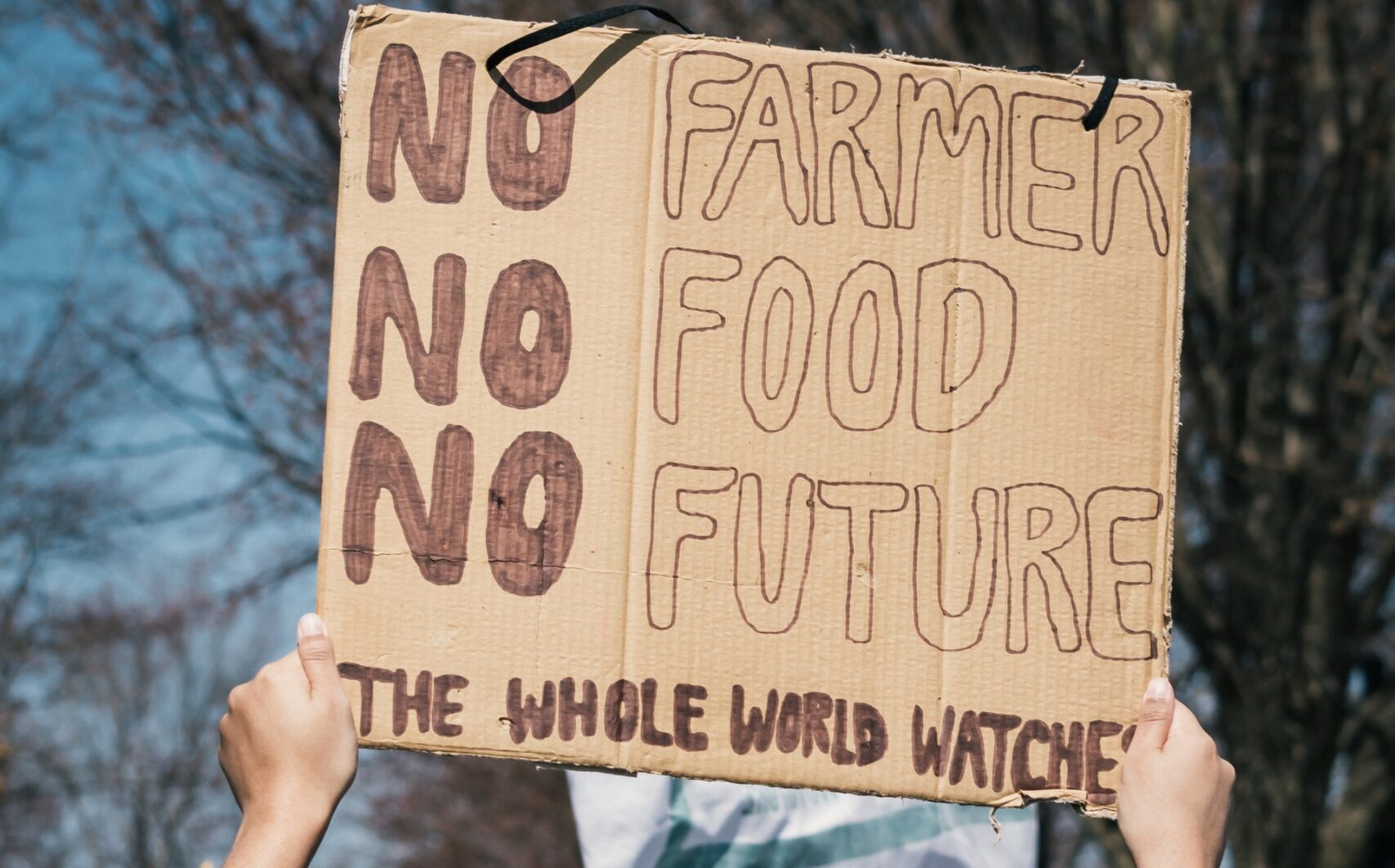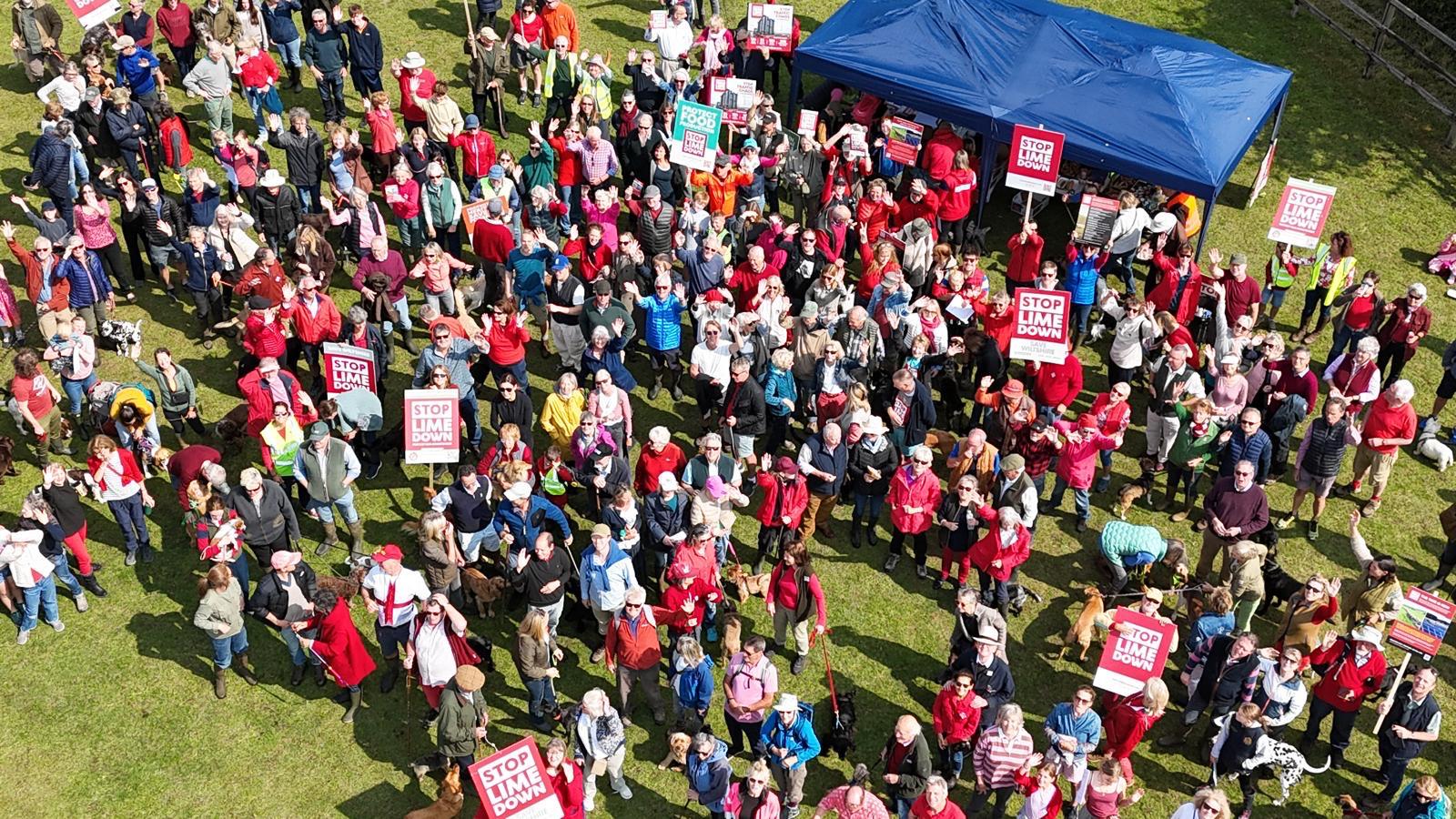?? Rooting for Real Farms – Red Deer Farm
Louise and her family run Red Deer Farm Rare Breeds in Exmoor, where she keeps Middle White sows which, with only around 350 left in the UK, are listed as endangered by the Rare Breeds Survival Trust. The farm also has British Lop and Gloucester Old Spot pigs. The animals are grown slowly, outdoors and fed with non-GM, organic feed.
Louise says “Because of the coronavirus, people have been more willing to buy online and have expressed more interest in the provenance of their food. People are happy with the few extra pennies that they’re not spending in the pubs and restaurants to spend on their food“.
? A Pigs Life – Part 5/6 – Outside the Factory
There is no environmentally friendly way of dealing with the volume of waste generated by such a high concentration of animals inside factory farms. Untreated waste (rich in ammonia, nitrogen and heavy metals) gets sprayed onto nearby fields and runs off into local water catchments poisoning rivers and lakes, killing fish and destroying whole ecosystems, as depicted in the latest in our series of pig poems and paintings by Harriet Clark.
The tractors spray the air with our manure slurry
The factory says there is no reason to worry……
Or care
That heavy poisonous gases remain in the air
Sometimes many miles away
Increasing the rates of asthma every day
We pigs don’t find it very bona fide
To spray the air with ammonia,methane and hydrogen sulphide
The contaminants can seep into the river bed
Leaving our fish and river life dead
We pigs wear shorts with high welfare farm labels
To remind the shopper that he is able
To buy pork from farms that are less alarming
And turn his nose up at pig factory farming
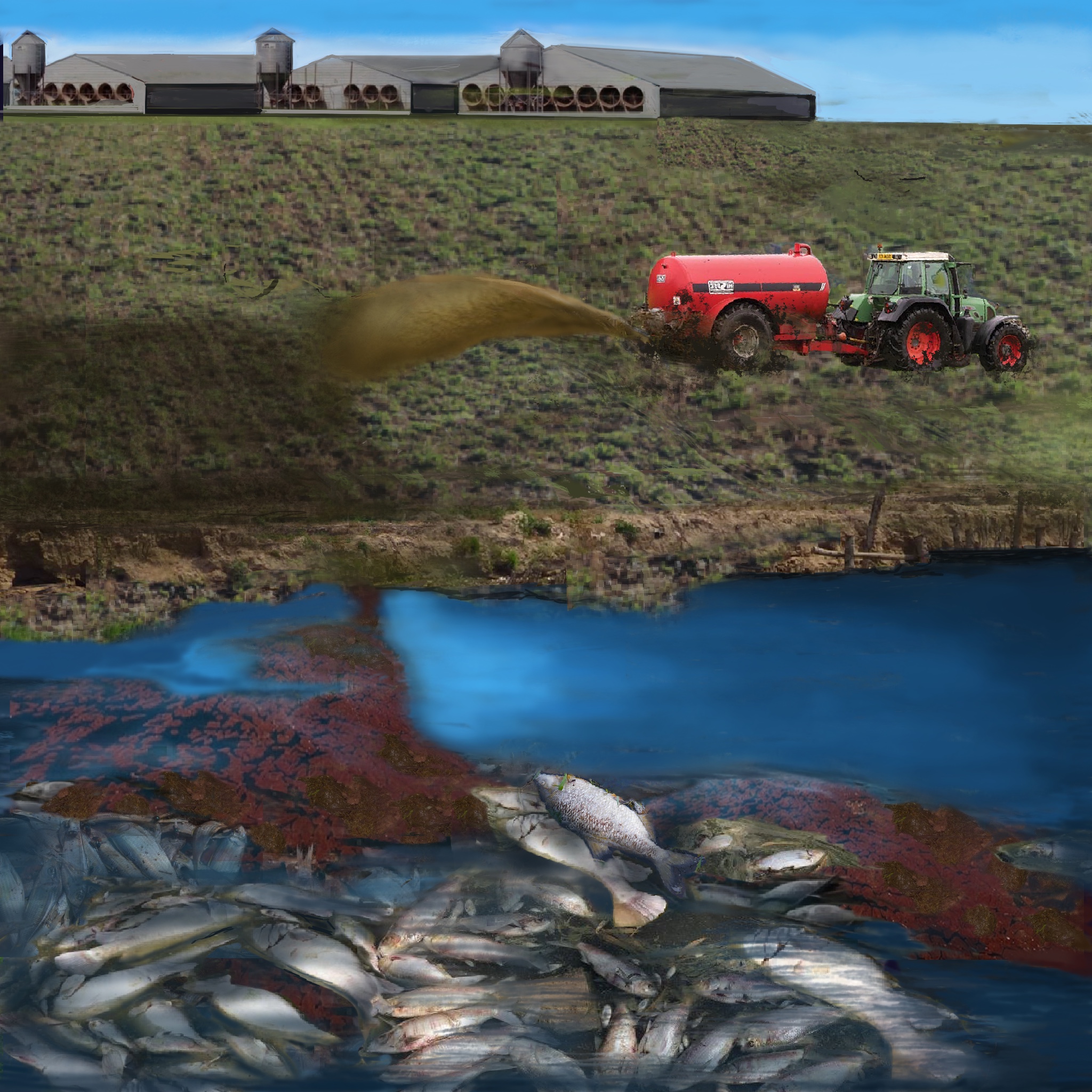
? Trade bill
The amendments that sought to ensure parliamentary scrutiny of Trade Bills have been defeated once again in the House of Commons, a result brought about by the overwhelming Tory majority. 341 Conservative and 10 DUP MPs voted against the amendments and 275 MPs, that is all the other parties and 15 rebel Tory MPs (2 more than at the last vote), voted for the amendment.
After this defeat, Global Justice Now suggests that we take the issue into our communities and offer comment to local newspapers. “We need to keep speaking out about the dangers of trade deals blocking climate action, weakening food standards and undermining the NHS – and take the trade campaign into the media”.
This is their template letter you can use to write to the local press.
? Race to the bottom
With imported meat from countries that have much lower standards than ours, to compete it’s no wonder that the number of factory farms in the UK continues to rise – the industry motto is ‘get big or get out! There has been a 7% increase in factory farm livestock units in England since 2017, a 10% increase in Scotland and a 21% increase in Wales. The increase in Wales is predominantly poultry factory farms. How much worse will UK farming get when, after trade deals, we have to compete with the US’s shocking treatment of chickens?
We need to take back the power; we don’t have to buy the poor standard imported food and we can protest like people in Taiwan who are objecting to the import and trade of ractopamine pork and like Indian farmers who are blocking the main roads into Delhi to demand the repeal of new farming laws which would devastate their livelihoods by removing the guaranteed government-agreed minimum price. The Modi government is ‘modernising’ the country’s agricultural industry by putting it into the hands of giant multinational companies as prescribed by Bill Gates and his corporate billionaire cronies.
? Red Tractor exposed
The success of the neoliberal model ‘modernising’ agriculture in the UK has seen the disappearance of most of its small scale independent farmers along with its soil, biodiversity and quality of food. Instead of legislation and guaranteed government-agreed minimum prices, our farmers are told to get the consumer to support them by buying into The Red Tractor assurance label to promote their Britishness. However, in this week’s Farming today (listen at 11 mins 30 secs in) we hear the UK National Farmers Union (NFU)’s Red Tractor assurance scheme is costing the farmers money and time with excessive bureaucracy and no assurance that the produce is even from the UK.
One farmer on the programme said, “Red Tractor is more like a protection racket. Buyers are buying unassured grain from other countries (like Ukraine and Canada) and mixing it in exactly the same grain store, mixing it with your assured wheat.”
Red Tractor currently has an open consultation that asks for industry experts, farmers and retail representatives to comment on plans to revise standards. A representative from the Red Tractor board, said that “if customers want high standards, then that is what we will have to achieve”, which is somewhat contradictory as on the consultation website there is no opportunity for consumers to respond to the consultation.
Farms Not Factories has written an open letter to Red Tractor saying that their present accreditation policies do not ensure adequate levels of transparency and animal welfare. The consultation is open until the 5th of March and we encourage you to please read and sign and send our letter on to Red Tractor.
⚡ Perfect storm for pig farmers
While small-scale family pig farmers have increased their sales of humanely produced local food, Red Tractor and its NFU parent, steered by its corporate members/funders, continue to promote the centralised industrial global trade narrative, despite pig farmers facing a crisis of falling prices, lack of capacity in Covid-stricken processors and Brexit delays to exports.
However, the writing is on the wall as financial and health risks of factory farming are driving public pressure to ditch this unsustainable system. In the US, a coalition of pressure groups have lodged a complaint against Smithfield, the largest pork producer in the world. The 47-page complaint goes on to detail Smithfield’s history of violating environmental laws and adoption of factory farm practices that underscore the meat processor’s practices as “quintessentially unsustainable”. They also raise the issue of the lack of transparency between Smithfield and their customers; “While Smithfield tells consumers that its production facilities are ‘the opposite’ of ‘factory farms,’ the company in reality relies on the factory farm model from start to finish,” the complaint says. See our film Pig Business, made for Channel 4 about Smithfield Foods.
Despite local opposition UK planning authorities are under enormous pressure to allow newfactory farms. Though councillors previously refused an application to build a new factory pig farm in a village near Hull, following objections from residents about manure odour and chemical emissions and their concerns that Cliffe Road was too narrow for farm vehicles and lorries, the application has been resubmitted – a decision councillors describe as undemocratic.
Though battles rage against applications for factory farms on the front line, we may be winning in the war. Fatal flaws in the financial structure of industrial pig farming are taking their toll with rising feed costs, issues with exports and the African Swine Fever (ASF) pandemic that are affecting Asian and European markets. It is a system unable to cope with market uncertainty; the inherent unsustainability of antibiotic-dependent factory farming, debt-driven investment in industrial housing and mechanised slurry systems and the increasing consumer distrust.
Add to this the impending disaster of African Swine Fever, and the potential emergence of new pandemics with factory farming as the vector as explained in this article,
“Pigs, like humans, are susceptible to more viruses when they are young because they have not yet had time to build up the antibodies needed to fight them. In Europe’s intense pork production system, pigs live to be just six months old before they are killed. That’s not yet old enough to fight off most influenza viruses, so “you have a lot of highly susceptible pigs,” says Beer.
The solution? “There has been a broader push to move away from factory farming to having smaller groups of pigs raised in greener environments, as well as a shift toward more healthy, sustainable agriculture, too. These ideas form a key part of the European Green Deal’s Farm to Fork strategy. Internationally, organisations like Farm Forward are providing funding to communities in developing nations where industrial animal farming is on the rise to maintain their independence and protect their rural farms, which are deemed to be more pandemic and environment-friendly.”
☣️ People vs genetically edited food
However, our corporate and biotech-friendly UK government is facilitating quite the opposite narrative by pushing gene-editing technology (editing the genomes of seeds, animals and plants) into our food system. By claiming that there is a difference between gene-editing and genetic modification (GM), they intend to get round the current EU ban on GM foods and legalise gene editing. The battle lines are drawn between those scientists, medics, farmers and consumers who want high tech agriculture and those who want to uphold the precautionary principle and respect more agro-ecological agriculture. On the retail side, Jim Bailey, Executive Director of Waitrose, suspects customers will not want to buy either gene-edited or genetically-modified food.
To amplify the voice of consumers who want to keep GM food out of UK supermarkets, Slow Food UK and Beyond GM have co-ordinated a campaign with more than 50 NGOs, civil society leaders and farmers to ask our largest UK supermarkets not to stock genetically engineered or gene edited (GMO) foods.
Please sign the open letter asking retailers to oppose the de-regulation and commit to not stocking the GM products if ever they are allowed in the UK. Also, if you haven’t already, please respond to the consultation on whether gene-editing should be deregulated which would result in gene-edited plants and animals being sold for human consumption in the UK.
Just compare our neoliberal UK government with those that have made the enlightened decision to enforce a total ban of this dangerous GM technology including France, Germany, Austria, Greece, Hungary, the Netherlands, Latvia, Lithuania, Luxembourg, Bulgaria, Poland, Denmark, Malta, Slovenia, Italy and Croatia. Wallonia, the French-speaking region of Belgium has opted out, as well as devolved Scotland, Wales and Northern Ireland. Recently, Tanzania’s agricultural Minister banned GMO trials and restricted imports of GMO to protect indigenous seed and Mexico’s President has banned GM maize.
? Bees vs Monsanto
A precursor to this ban was a successful anti-GM campaign led by Leydy Pech, a Mexican Mayan beekeeper who with other honey producers, works with a rare, stingless, native bee species (Melipona beecheii) that has been cultivated by the Mayans since pre-Columbian times.
In 2015 she led a coalition that stopped Monsanto from planting genetically-modified crops in southern Mexico. The coalition proved that local honey had been contaminated with genetically-modified soy pollen and that glyphosate, the cancer-causing chemical in Monsanto’s herbicide Roundup, had been found in the local water supply and in peoples’ urine. As a result of her work, for which she received the Goldman Environmental Prize last month, Monsanto’s permits to grow GM soy were cancelled in nine Mexican states.
The UK is low ranking in terms of farmers converted to organic, that bans GMOs and gene editing, with only 2% farms while Denmark is 11%! And farmers in Germany have just announced that they are to gradually reduce their use of glyphosate and stop using it completely from 2024 in order to preserve clean habitats for insects, under draft legislation passed by the country’s cabinet on Wednesday.
? Wake up to a better food system
To wake the Tories from sleepwalking ever further down to a broken food system, if any of you have any influence, ask them to listen to this Oxford Farming Conference (OFC) talk by Tim Benton (presentation slides here), leader of the Energy, Environment and Resources programme at Chatham House. From 2011-2016 he was the “champion” of the UK’s Global Food Security programme which was a multi-agency partnership of the UK’s public bodies (government departments, devolved governments and research councils) with an interest in the challenges around food. He has published more than 150 academic papers, many tackling how systems respond to environmental change – in this OFC session he discussed People, Planet, Prosperity – Getting our Food Systems Right. Many speakers at the Oxford Real Farming Conference praised his thoroughly researched analysis calling on the government to adopt a more resilient food system along agro-ecological principles to produce healthy diets, biodiversity and soil and sequestrate GHGs.
Forgive me for pointing out that, while we receive some one-off donations, I am funding Farms Not Factories myself, and if we are to continue to fight the cruel, antibiotic-led factory farm system, we will need some regular donations from like-minded people. Please consider a monthly subscription of £2/month and help us support a network of smaller scale, humane and healthy UK pig farms, local abattoirs and butchers.
Contents
Share This Article
Related ArticlesView All
Protect UK Farmers from Low Standard Imports
The purpose of our newsletter is to give you important information that is censored in the mainstream media. “The way… Read More
Protectionism vs So-Called Free Trade
The purpose of our newsletter is to give you important information that is censored in the mainstream media. “The way… Read More
Find A Farmer
The purpose of our newsletter is to give you important information that is censored in the mainstream media. “The way… Read More
Zionist Money Rules
The purpose of our newsletter is to give you important information that is censored in the mainstream media. “The way… Read More
The Price of Progress
The purpose of my newsletter is to give you important information that is censored in the mainstream media. “The way… Read More
Silencing Dissent Through Fear
The purpose of my newsletter is to give you important information that is censored in the mainstream media. If you… Read More
